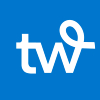20 Top Social Media Scheduling Tools To Boost Productivity
Looking for the best social media scheduling tools to help you manage your online presence? Check out our list of the top 20 tools that can help boost your productivity, save you time, and maximize your social media strategy.

Stay organized, save time, and easily manage your social media with Agorapulse’s inbox, publishing, reporting, monitoring, and team collaboration tools.
Visit website➔
Today’s brands need to adapt quickly to make it to tomorrow. Understand and engage with your customers at the speed of social with Brandwatch, the social suite built for our fast-moving world.
Visit website➔
Buffer helps you build an audience organically. We’re a values-driven company that provides affordable, intuitive, marketing tools for ambitious people and teams.
Visit website➔
CoSchedule is a free social media planner tool focused on publishing and known for its content calendar feature.
Visit website➔

Top-rated WordPress to social media auto poster and scheduler plugin. Post automatically to 20 social networks and services straight from your WordPress dashboard.
Visit website➔
Save time and grow on social with Hootsuite, your all-in-one social media scheduler, manager, and analytics secret weapon.
Visit website➔
Later is a social media management platform and link in bio tool for every social network. Plan, analyze, and publish content in advance — so you can save time & grow your business.
Visit website➔
Loomly is the social media management platform that empowers marketing teams to grow successful brands online through collaboration, publishing & analytics features.
Visit website➔
Manage all your publishing, advertising, engagement, reviews and reporting from one centralized platform
Visit website➔
The unique social media management tool that schedules for you. Edgar automatically pulls posts from your content library to keep your social fresh every day, on repeat.
Visit website➔
Moderate, publish, analyze, grow – with an all-in-one social media management platform that connects your teams and untangles your workflows.
Visit website➔

Use one tool to schedule and manage your posts on Facebook, Instagram, Google, LinkedIn, Pinterest, Twitter and TikTok.
Visit website➔
Elevate your brand story on social media. Collaborate with your clients and teams to plan, post, and measure the success of content on every platform.
Visit website➔
SmarterQueue takes the headache out of content scheduling. Each Category has its own separate Queue and Posting Plan, so you don't need to worry about timings. It's all automated.
Visit website➔
Easily schedule and publish posts on all major social media platforms from one single place.
Visit website➔
SocialBee helps you manage your social media accounts from one place—create, schedule, publish, and analyze. Save time and grow your profiles with an affordable tool.
Visit website➔
Reimagine how social media can grow your business with Sprout Social. Uncover trends and actionable insights from social data to inform brand and business strategy.
Visit website➔
Statusbrew is a top social media management software that provides publishing, engagement, social monitoring, analytics and team collaboration tools.
Visit website➔
Social media & email marketing made easy in one marketing management tool. Generative AI copywriter, Pinterest and Instagram scheduling, aesthetic templates, SmartScheduler, & more.
Visit website➔
Schedule unlimited posts, monitor what matters, and create custom-reports to analyze your social media performance with Zoho Social.
Visit website➔Good to know...
What are social media scheduling tools and how do they work?
Social media scheduling tools are software applications that allow individuals and businesses to plan, create, and schedule their social media content in advance, often for multiple platforms at once. These tools streamline the process of posting content on social media by allowing users to create content in bulk and schedule it to be published at a specific time and date in the future. This can save a significant amount of time and effort compared to manually posting content on each social media platform.
What are the benefits of using social media scheduling tools for businesses and individuals?
Using social media scheduling tools can provide a range of benefits for businesses and individuals, including:
- Saving time and effort by allowing users to schedule content in advance
- Ensuring consistency in posting frequency and content quality
- Reaching a wider audience by posting at optimal times for maximum engagement
- Improving overall social media performance and ROI
- Streamlining content planning and strategy
- Managing multiple social media accounts and platforms in one place
- Gaining insights and analytics to measure the effectiveness of social media campaigns.
Which social media scheduling tools are the best for different types of businesses or individuals?
There are many different social media scheduling tools available, and the best tool for a particular business or individual depends on their specific needs and budget. Some popular social media scheduling tools include Hootsuite, Buffer, Sprout Social, Later, and CoSchedule. It is important to research and compare different options to find the best fit for a particular business or individual.
How much do social media scheduling tools cost and are they worth the investment?
The cost of social media scheduling tools can vary greatly depending on the features and functionality offered. Some tools offer basic scheduling features for free, while others can cost hundreds or even thousands of dollars per month for advanced features.
Some popular social media scheduling tools and their approximate costs are:
- Hootsuite - plans start at $99/month
- Buffer - plans start at $6/month
- Sprout Social - plans start at $249/month
- CoSchedule - plans start at $29/month
- MeetEdgar - plans start at $25/month
It's important to note that while social media scheduling tools can be a valuable investment for businesses and individuals who want to save time and streamline their social media management, they may not be necessary for everyone. If you're managing a small personal account, for example, you may be able to accomplish your goals with free scheduling tools or simply by manually scheduling your posts.
Ultimately, whether or not a social media scheduling tool is worth the investment depends on your individual needs and goals. If you're managing multiple social media accounts, need to track analytics, or want to automate your social media posting, a scheduling tool can be a worthwhile investment. However, if you only need basic scheduling features, it may not be necessary to spend money on a tool.
Can social media scheduling tools help with content planning and strategy?
Yes, social media scheduling tools can be helpful for content planning and strategy in a number of ways. Here are a few examples:
- Content Calendar: Many social media scheduling tools offer a content calendar view, which allows you to plan and visualize your social media content over time. This can help you ensure that you're maintaining a consistent posting schedule, avoiding gaps or overlaps in content, and aligning your content with important dates and events.
- Audience Insights: Some scheduling tools also offer audience insights and analytics, which can help you understand your followers' interests, behaviors, and engagement patterns. This information can be used to inform your content strategy, such as by creating content that resonates with your audience or adjusting your posting schedule based on when your followers are most active.
- Collaboration: Some scheduling tools also offer collaboration features that allow multiple team members to contribute to content planning and strategy. This can be particularly helpful for larger organizations or teams that need to coordinate on content creation and posting.
Overall, while social media scheduling tools are primarily focused on the logistical aspect of social media management, they can also be valuable tools for planning and executing a cohesive content strategy.
How do social media scheduling tools handle changes in algorithms and updates to social media platforms?
Social media scheduling tools typically stay up-to-date with changes in algorithms and updates to social media platforms by implementing regular updates and changes to their software.
Most reputable social media scheduling tools have a team of developers and product managers who closely monitor changes to social media platforms and make updates to their tools accordingly. This may involve adding new features or functionality to keep up with changes to the platforms, or adjusting existing features to ensure they continue to work as intended.
In addition to software updates, social media scheduling tools may also provide resources to help users stay informed about changes to social media platforms. This might include blog posts, webinars, or other educational materials that explain how to adapt to new algorithms or updates.
It's worth noting that while social media scheduling tools can help you stay on top of changes to social media platforms, it's still important to keep up with news and updates from the platforms themselves. This can help you make informed decisions about your social media strategy and ensure that you're using your scheduling tool in the most effective way possible.
What are the different features and functionalities of social media scheduling tools?
Social media scheduling tools offer a range of features and functionalities to help users manage their social media presence more efficiently. Some of the most common features and functionalities include:
- Scheduling: The ability to schedule posts in advance, either individually or in bulk, across multiple social media platforms.
- Content calendar: A visual representation of upcoming posts, which can help users plan their content strategy and ensure a consistent posting schedule.
- Analytics: The ability to track and analyze social media metrics, such as engagement, reach, and follower growth, to measure the success of your social media strategy.
- Content curation: The ability to discover and share relevant content from other sources, such as news articles or industry publications, to supplement your own original content.
- Social listening: The ability to monitor social media channels for mentions of your brand, industry, or competitors, and respond to comments or engage in conversations.
- Collaboration: The ability to collaborate with team members or clients on social media content creation, scheduling, and analytics.
- Automated posting: The ability to automatically post content at pre-determined times or based on specific triggers, such as when a blog post is published.
- Mobile access: The ability to manage social media accounts and schedule posts from a mobile device, such as a smartphone or tablet.
- Customization: The ability to customize your social media posts for each platform, including text, images, and hashtags.
- Integration: The ability to integrate with other tools and platforms, such as content management systems, email marketing software, or customer relationship management software.
These are just some of the many features and functionalities offered by social media scheduling tools, and different tools may offer a different combination of these features depending on their target audience and use case.
What metrics and analytics are provided by social media scheduling tools to measure the effectiveness of social media campaigns?
Social media scheduling tools typically offer a range of metrics and analytics to help users measure the effectiveness of their social media campaigns. Here are some of the most common metrics and analytics provided by social media scheduling tools:
- Engagement: This includes metrics such as likes, comments, shares, and clicks, which can help you understand how your audience is interacting with your content.
- Reach: This measures how many people have seen your content, which can help you understand how effectively you're reaching your target audience.
- Follower growth: This measures how many new followers you've gained over a given period of time, which can help you understand the impact of your content and engagement strategies.
- Impressions: This measures how many times your content has been viewed, which can help you understand the overall visibility of your content.
- Click-through rate: This measures the percentage of people who click on a link in your social media post, which can help you understand the effectiveness of your calls to action.
- Conversion rate: This measures the percentage of people who take a desired action, such as making a purchase or signing up for a newsletter, as a result of your social media campaign.
- Audience demographics: This provides information about your audience's age, gender, location, and other characteristics, which can help you tailor your content to their interests and preferences.
- Competitor analysis: This provides insights into how your social media performance compares to that of your competitors, which can help you identify areas for improvement.
These metrics and analytics can help you measure the success of your social media campaigns, identify areas for improvement, and optimize your social media strategy over time.